Exploring VR Therapy for PTSD & Substance Abuse in Veterans
VerifiedAdded on 2023/06/12
|8
|1242
|132
Essay
AI Summary
This essay explores the application of virtual reality (VR) therapy for treating substance abuse and post-traumatic stress disorder (PTSD) in veterans. It begins by outlining basic research concepts such as qualitative and quantitative analysis, with a focus on Interpretative Phenomenological Analysis (IPA). The essay discusses the role of inductive and deductive research approaches, highlighting the selection of the inductive approach for its suitability in analyzing interview data. Action research is defined as a focused effort to improve therapy quality, specifically in the context of VR therapy. The research process is detailed, emphasizing the synergistic relationship between research and clinical practice. The research dimension focuses on analyzing the significance of VR in treating PTSD and substance abuse, acknowledging both its potential benefits and risks. The research purpose is to elucidate VR's role in these treatments, employing both qualitative (secondary data analysis) and quantitative (interviews with psychotherapists) research methods. The chosen research design is descriptive, aligning the study's objectives with the findings. Finally, the essay adopts an interpretivism research paradigm, valuing the multilayered nature of human behavior and the importance of real-life settings in understanding the role of VR therapy.
1 out of 8
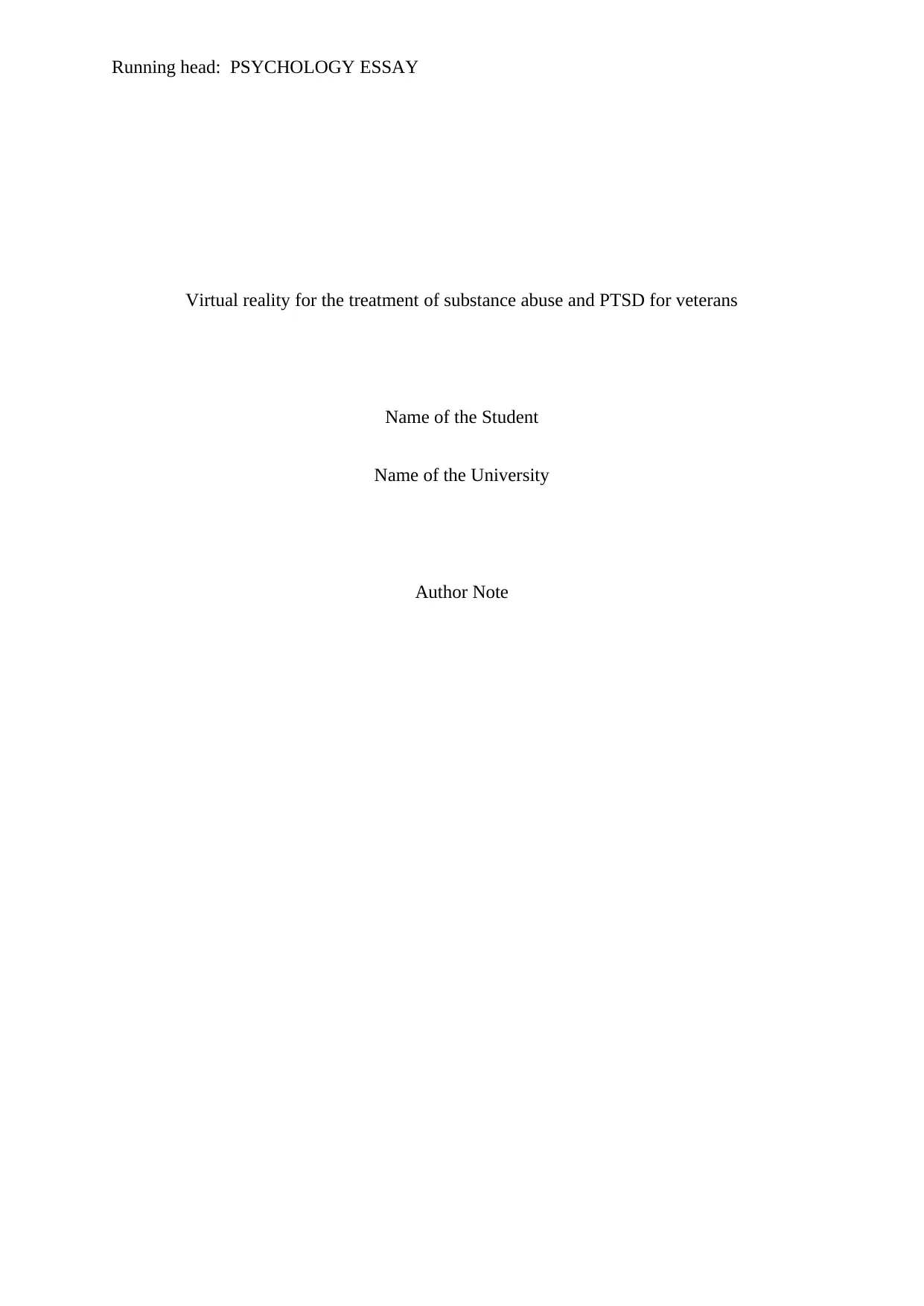
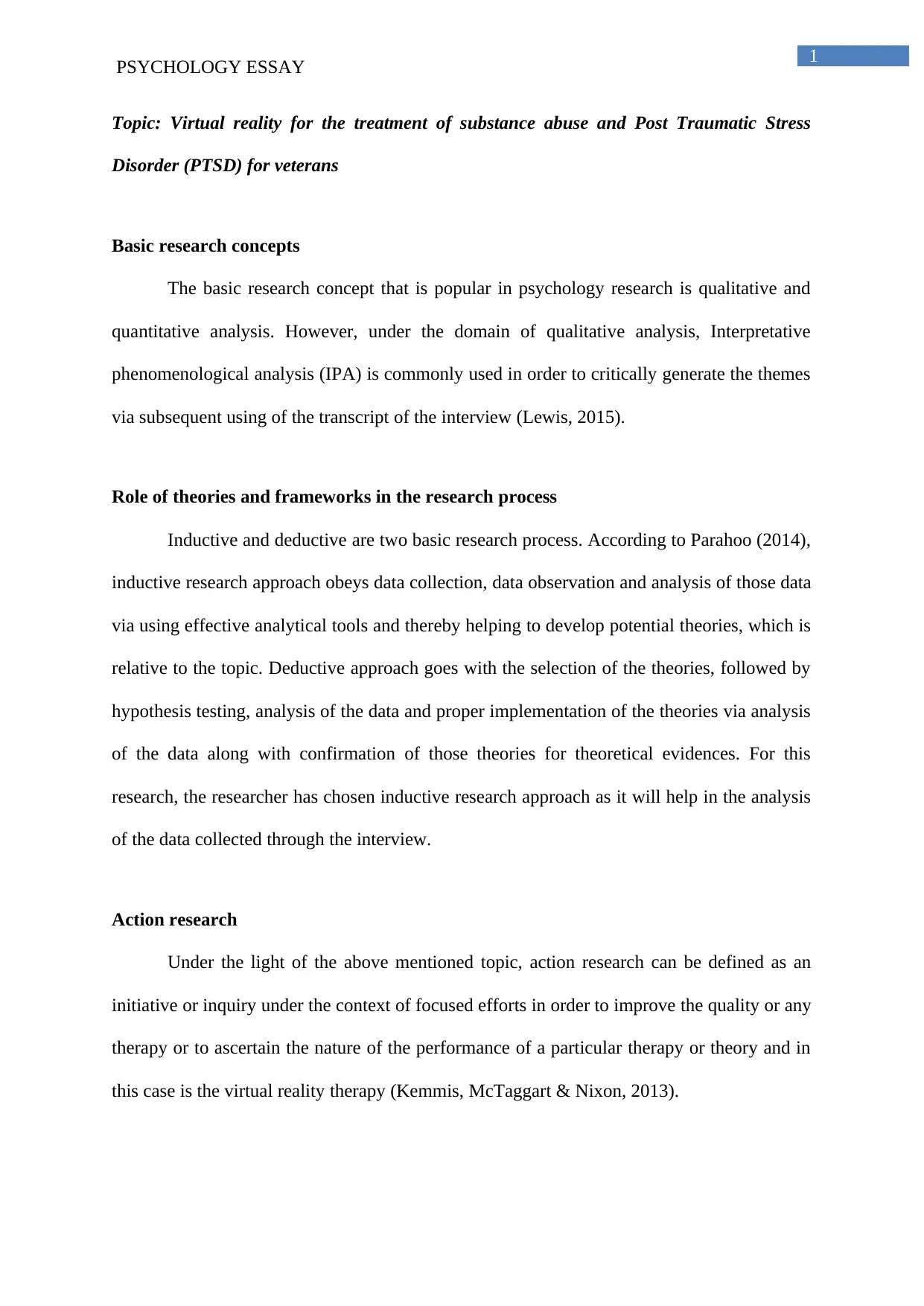
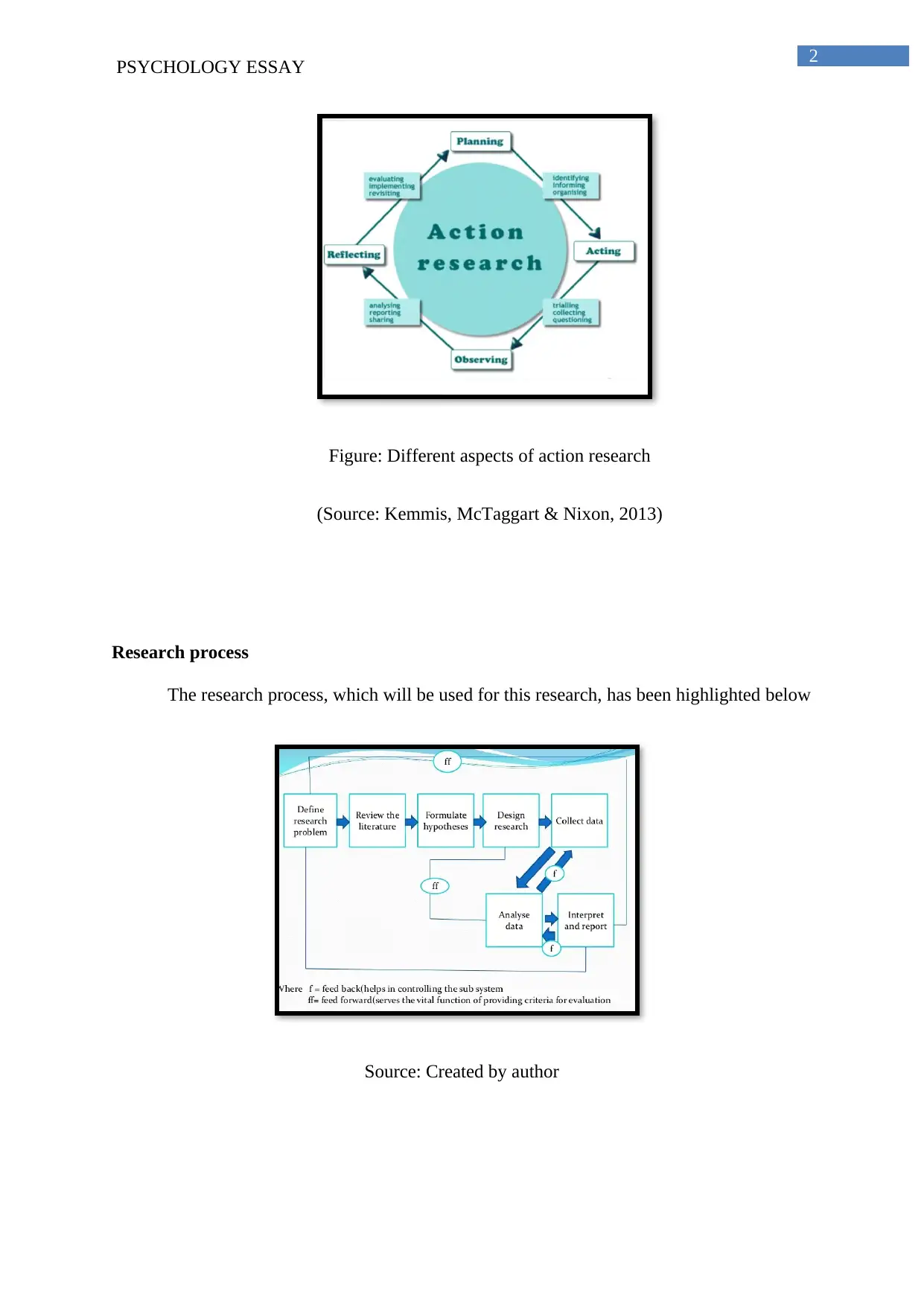

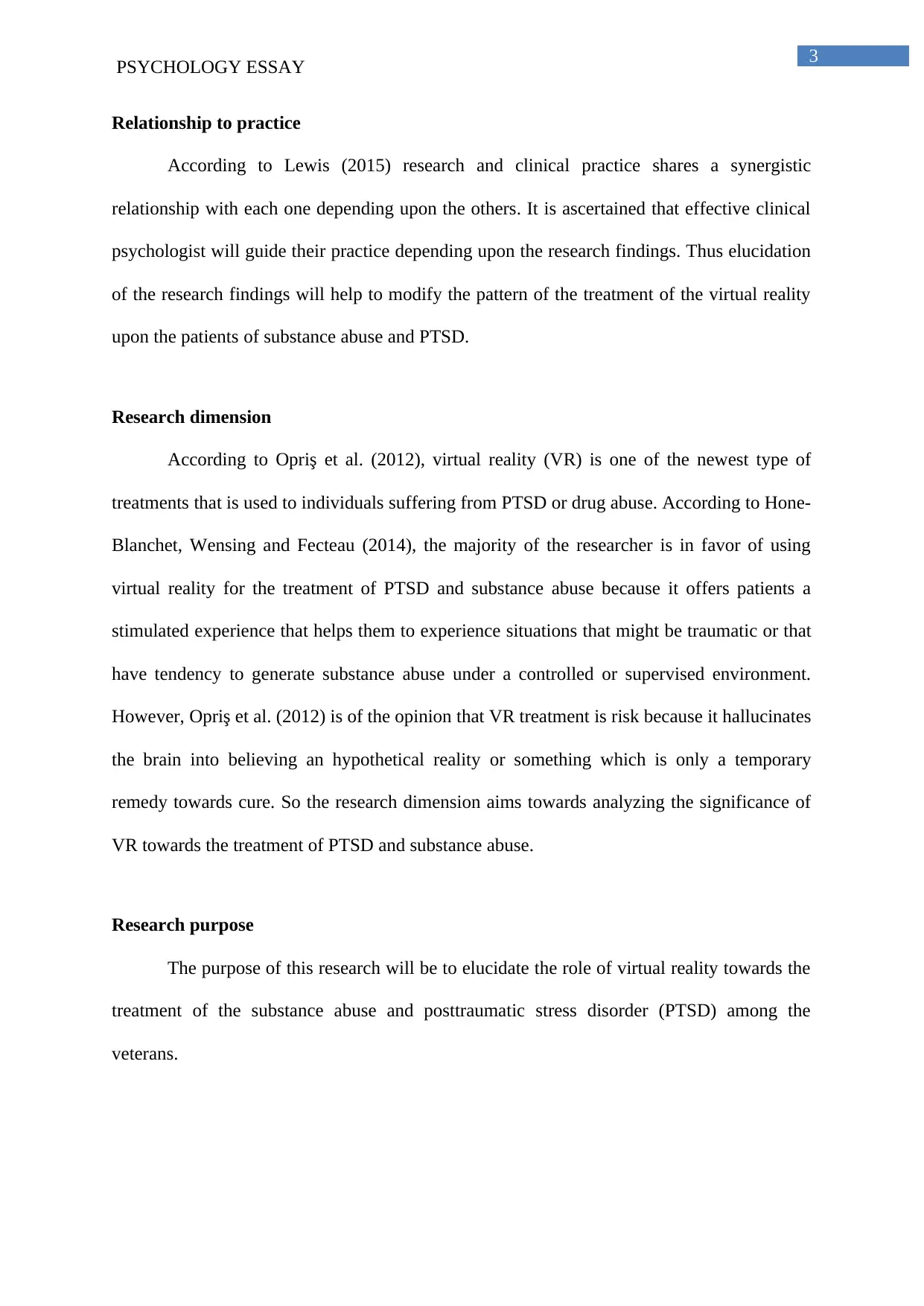
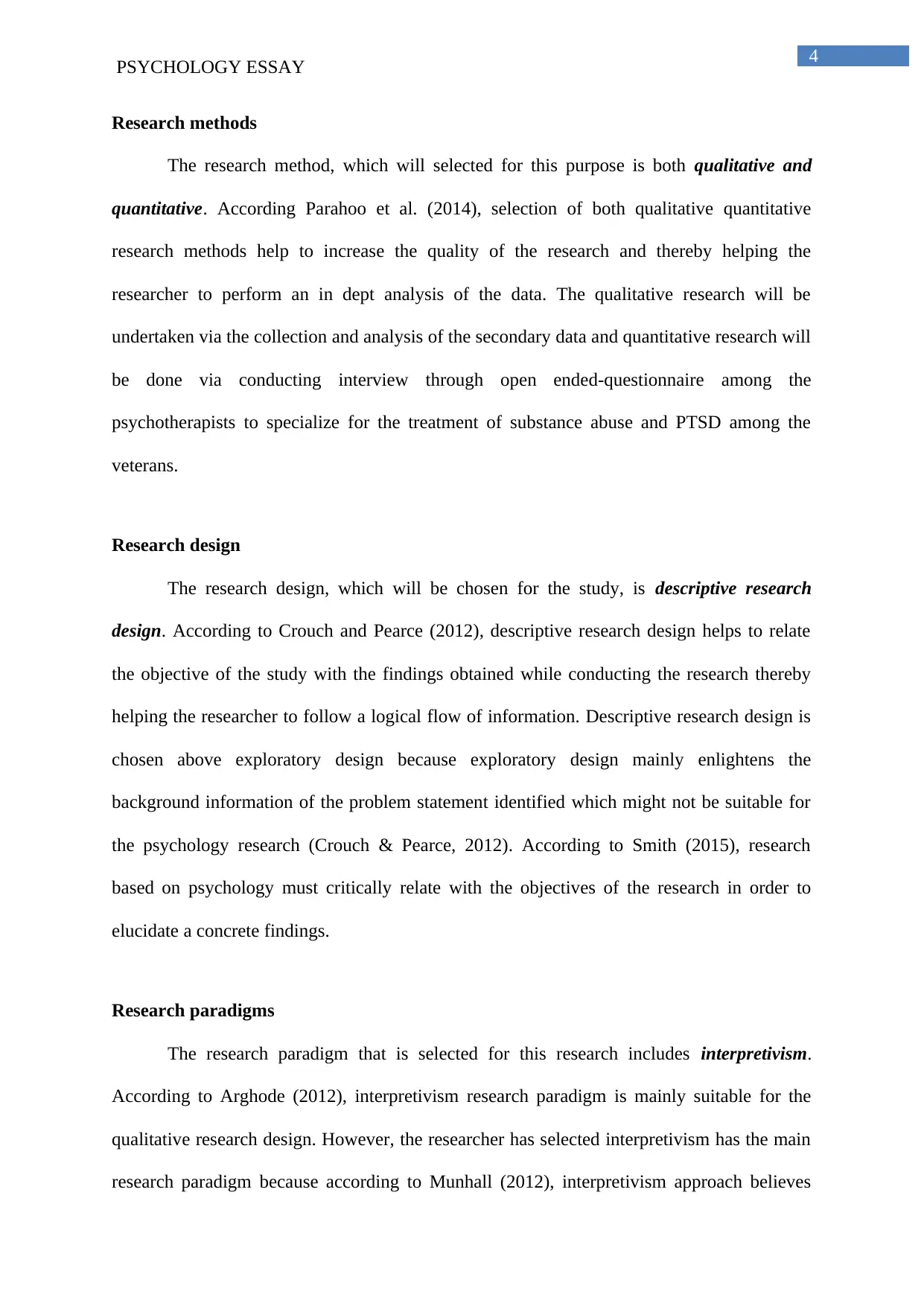

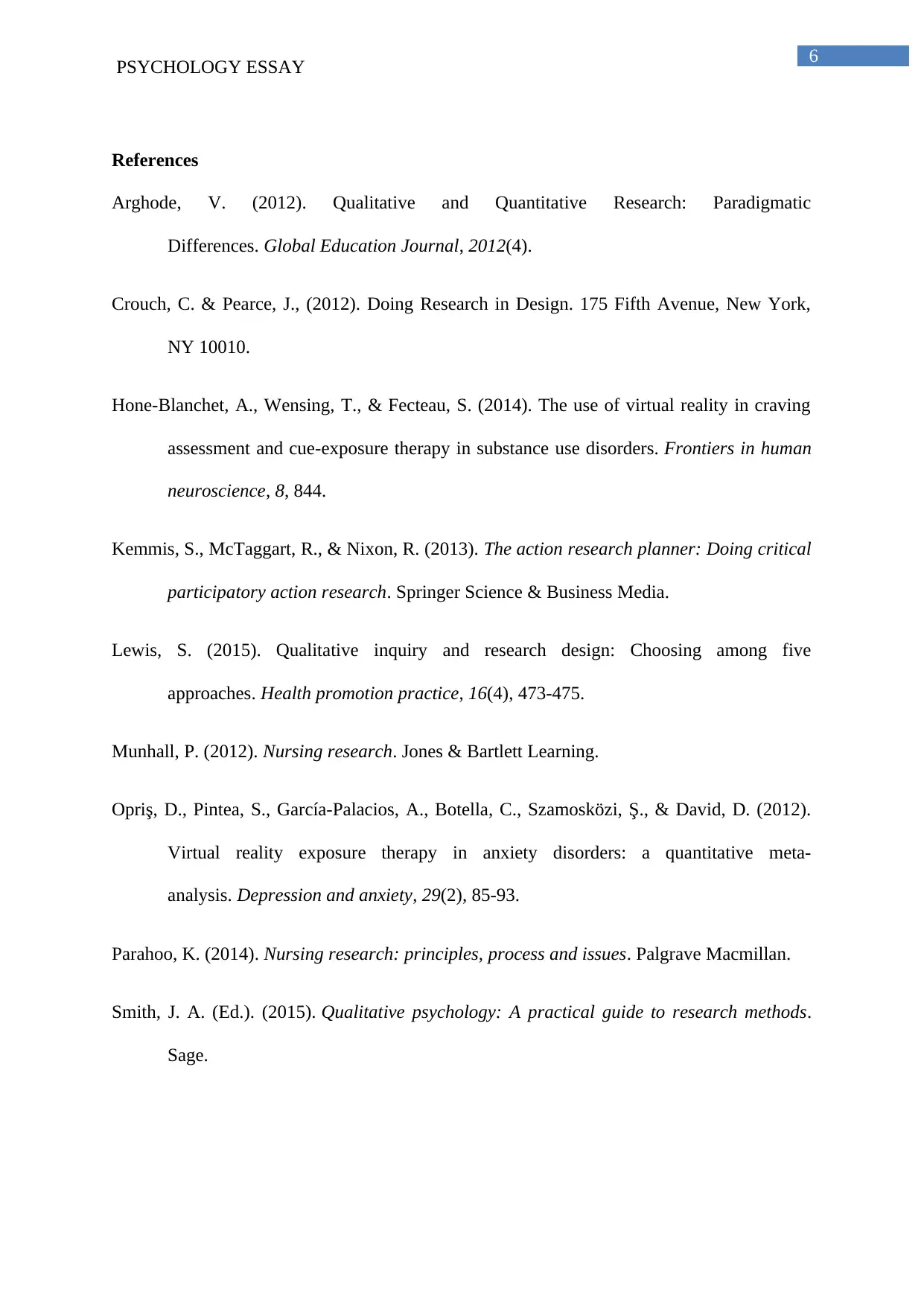

![[object Object]](/_next/static/media/star-bottom.7253800d.svg)